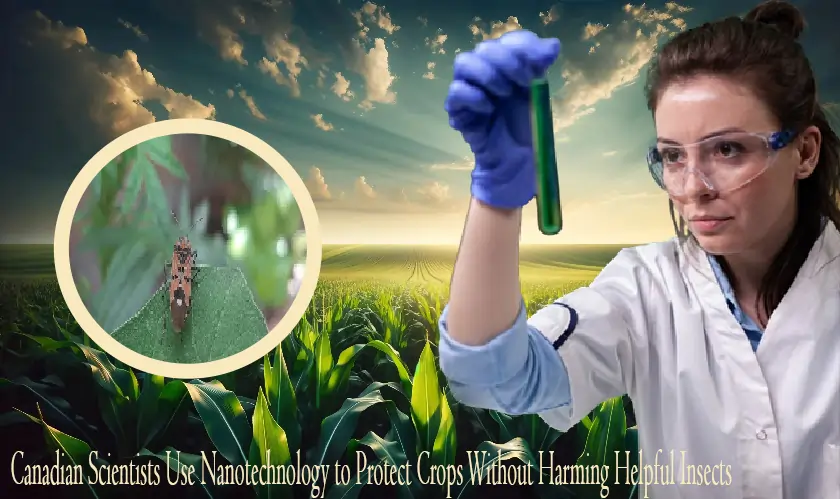Home Industry Nanotechnology Canadian Scientists Use Nanote...
Nanotechnology

CIO Bulletin
29 September, 2025
New research could help farmers fight pests while keeping pollinators safe.
Farmers around the world lose up to 40% of their crops each year to hungry pests. In Canada alone, agriculture generated more than $142 billion in 2024, making pest control a serious challenge. But a team of scientists at Agriculture and Agri-Food Canada (AAFC) believes nanotechnology could change the game.
Led by Dr. Justin Pahara at AAFC’s LethbridgeResearch and Development Center, the team is exploring new ways to target pests without harming beneficial insects. Instead of relying on broad-spectrum pesticides, their approach focuses on delivering tiny, DNA-specific treatments directly into harmful bugs.
Working with the Canadian Light Source at the University of Saskatchewan, researchers used X-ray imaging to study lygus bugs, a common pest that attacks crops like canola. They discovered mineral-rich regions in the insects, linked to proteins that could one day be targeted with custom nanomaterials.
“Our goal is to design tools that stop pests without wiping out pollinators or predators like spiders and beetles that farmers rely on,” said Dr. Pahara. He compared the growing resistance of insects to pesticides with the way bacteria become resistant to antibiotics in humans.
The team has already created 3D models of pests using virtual reality to understand how chemicals move inside their bodies. Their next step is testing nanomaterials on weeds and fungi, in collaboration with Canada’s National Research Council. If successful, this research could help farmers protect their fields while supporting healthier ecosystems.







